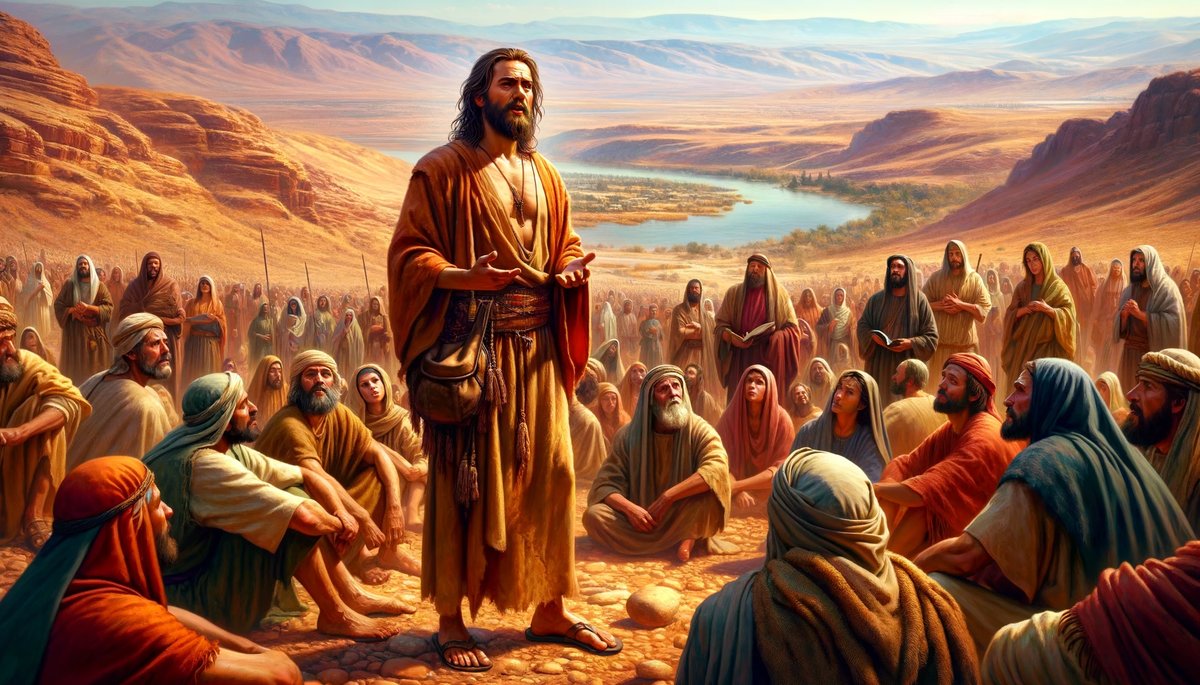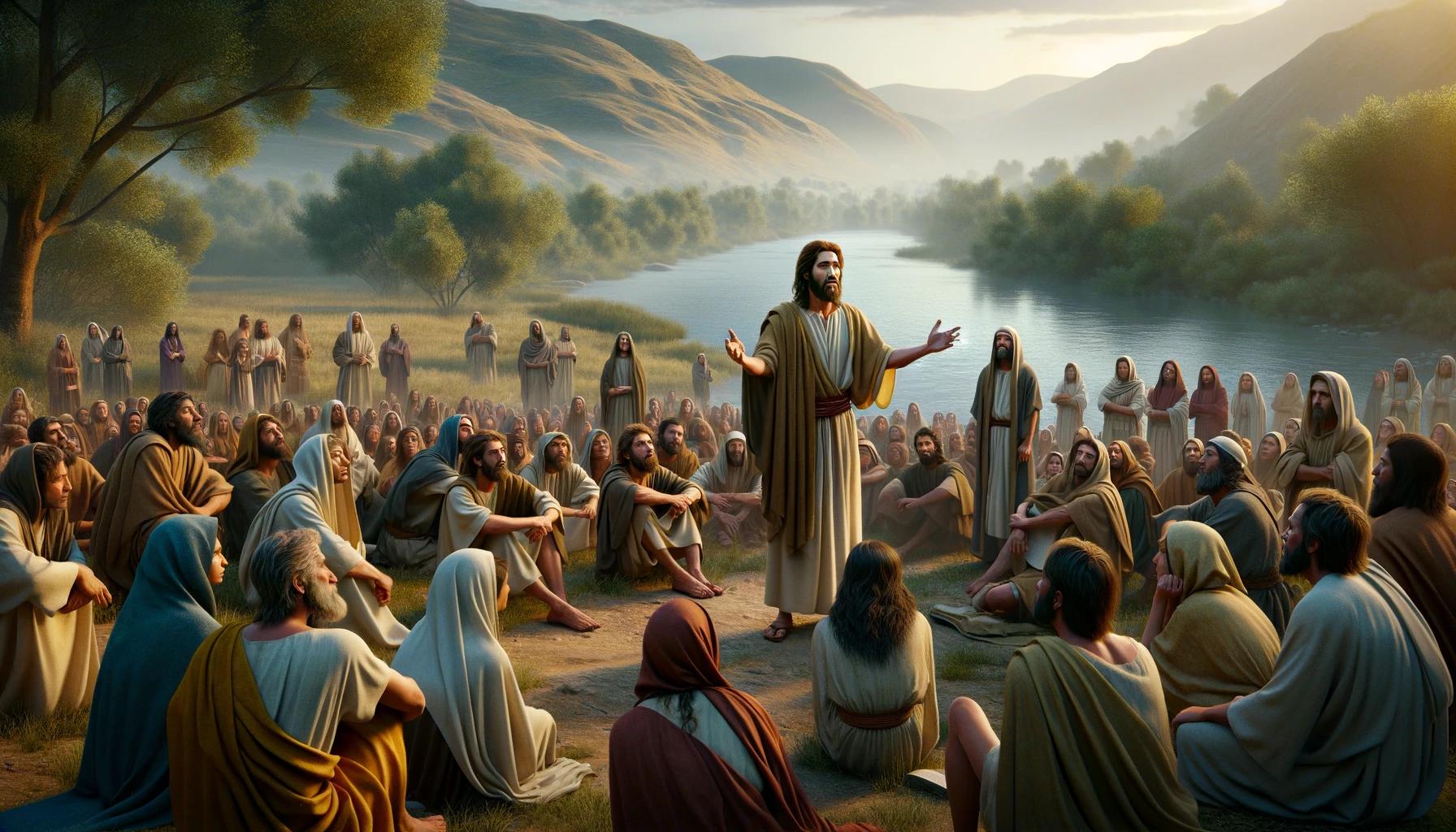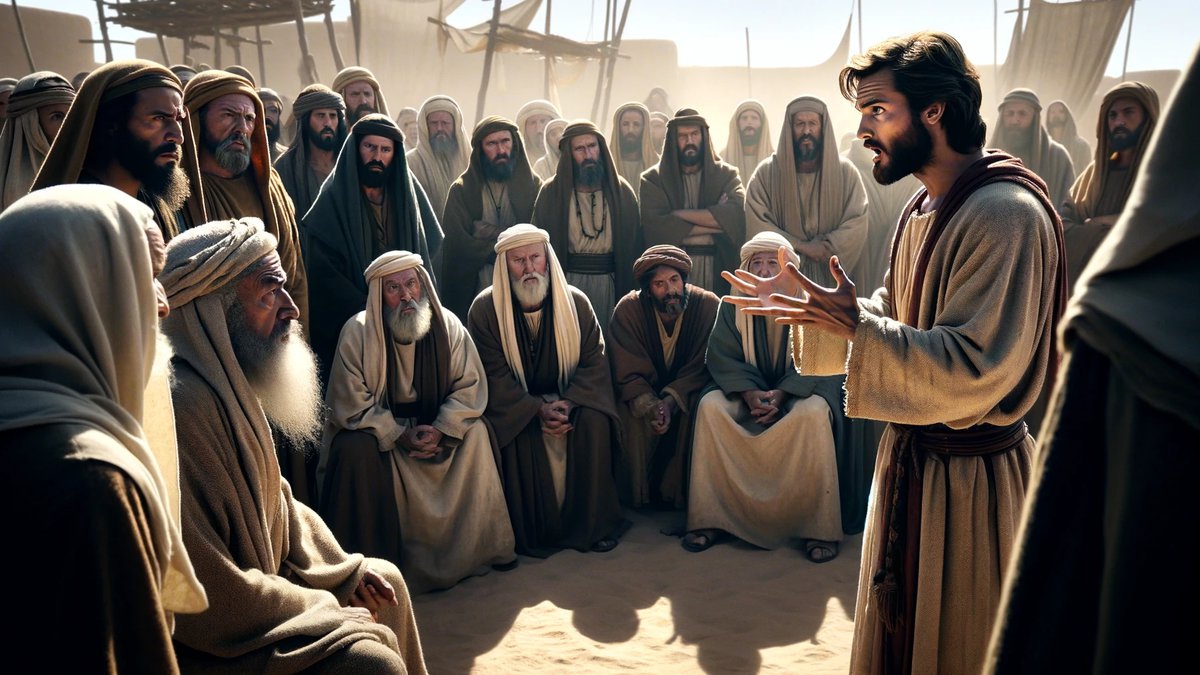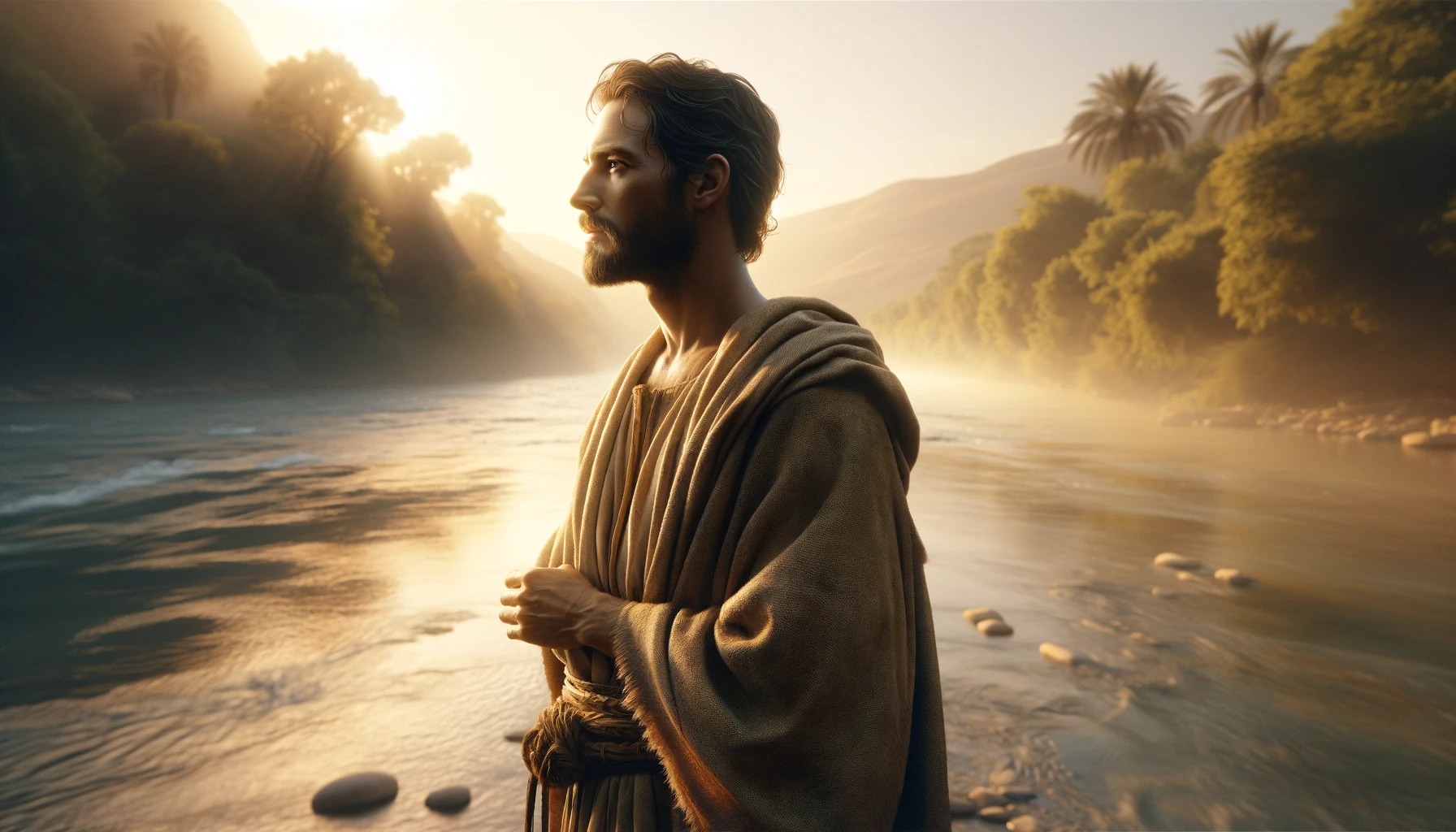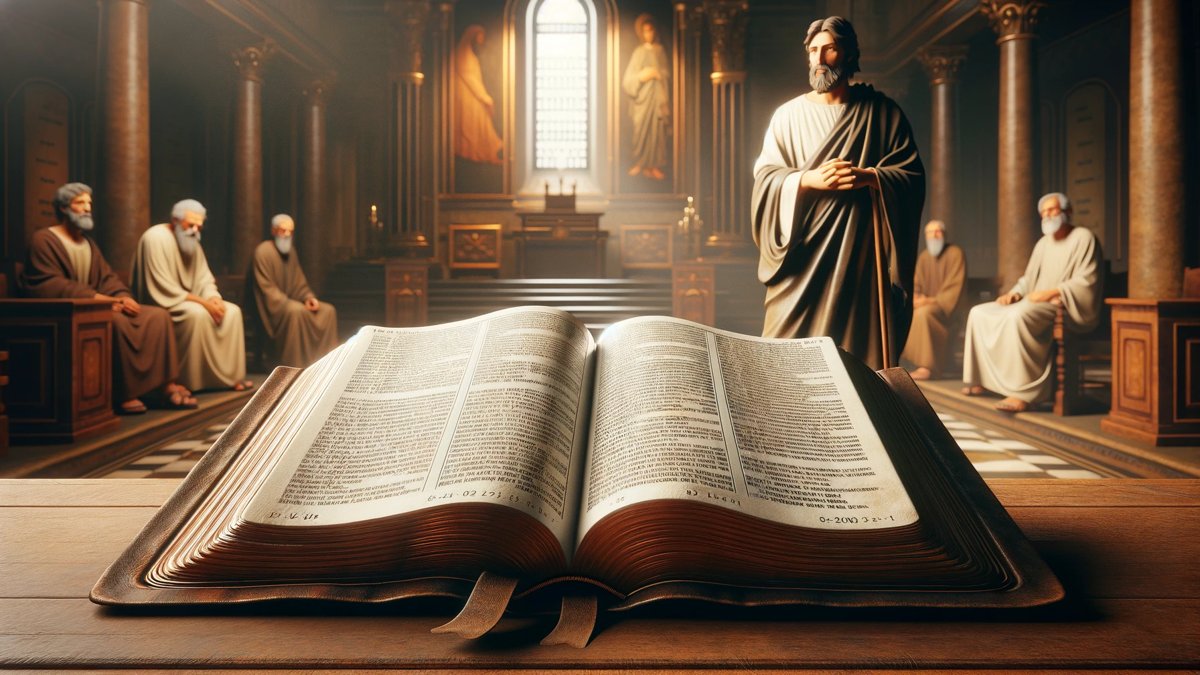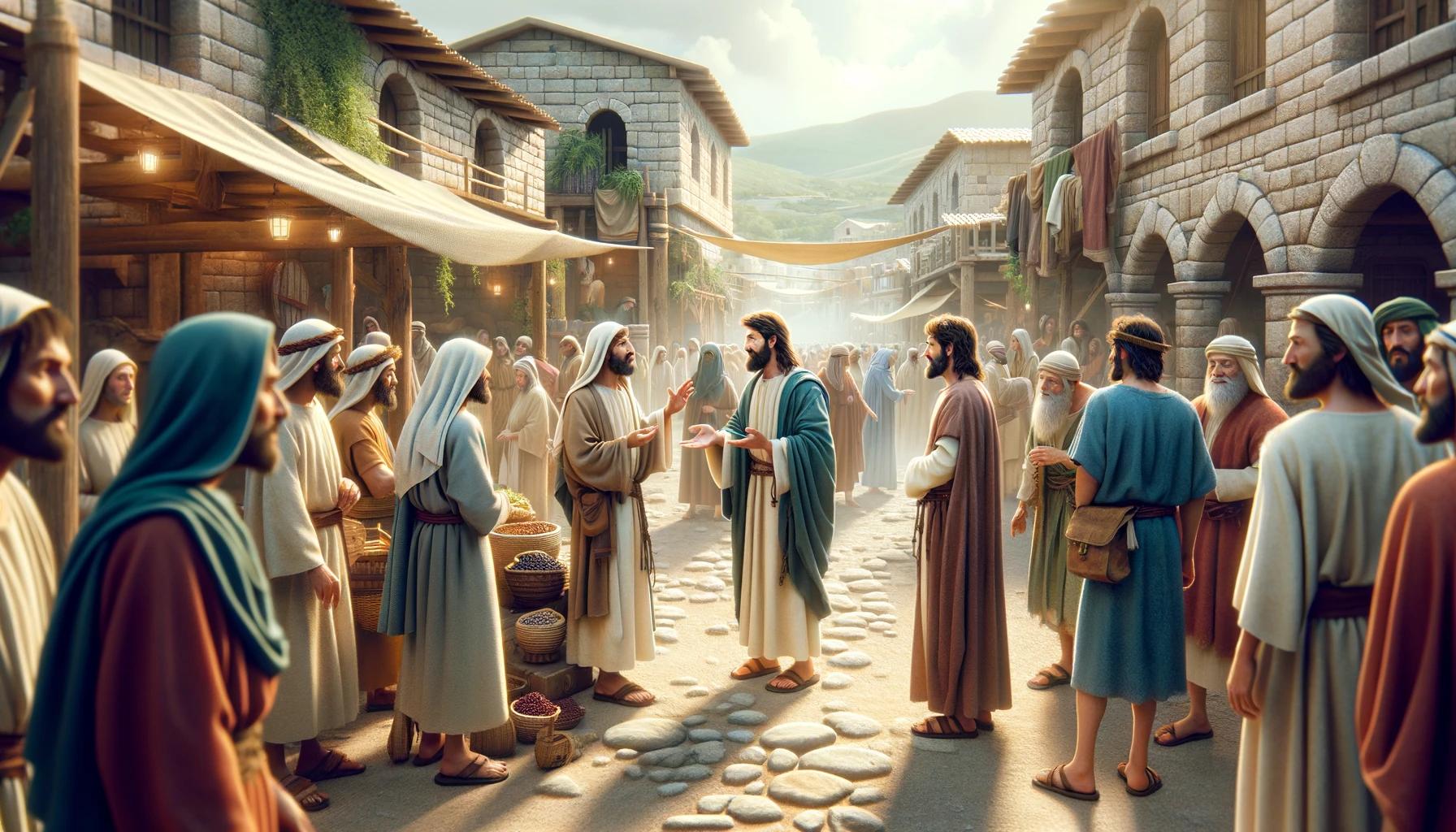Home>Theology and Spirituality>What Did John The Baptist Do For A Living
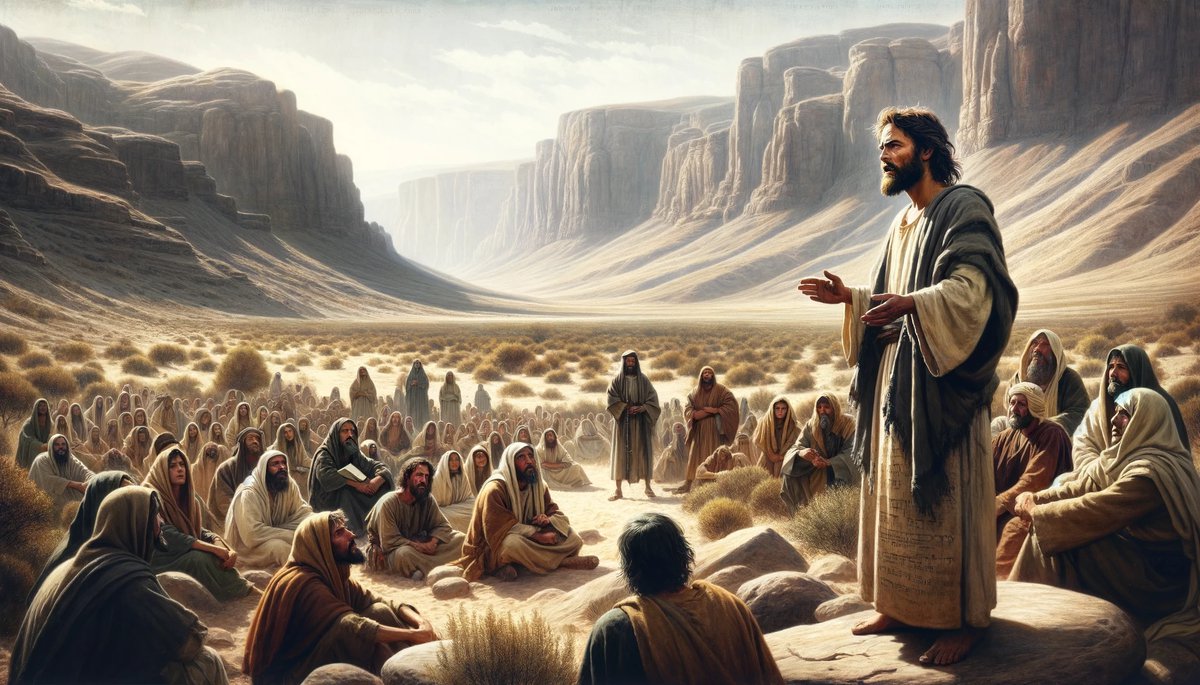

Theology and Spirituality
What Did John The Baptist Do For A Living
Published: February 24, 2024
Ericka Andersen, an editor at Christian.net, expertly merges digital strategy with content creation, focusing on faith and societal issues. Her communication skills enhance the platform's engaging narratives, fostering meaningful dialogue on belief's impact on society.
Discover the fascinating life of John the Baptist and his impactful role in theology and spirituality. Learn about his unique profession and influential contributions.
(Many of the links in this article redirect to a specific reviewed product. Your purchase of these products through affiliate links helps to generate commission for Christian.net, at no extra cost. Learn more)
Table of Contents
Introduction
John the Baptist is a prominent figure in the Christian faith, revered for his pivotal role in preparing the way for the ministry of Jesus Christ. His life and teachings are deeply rooted in the Gospels, where he is depicted as a bold and enigmatic prophet who fearlessly proclaimed the coming of the Messiah.
As we delve into the life and legacy of John the Baptist, it becomes evident that his impact transcends mere historical significance. His unwavering commitment to righteousness and his radical call to repentance continue to resonate with believers across the globe.
The story of John the Baptist unfolds in the backdrop of ancient Judea, a time marked by spiritual anticipation and societal upheaval. Against this tumultuous backdrop, John emerges as a voice crying out in the wilderness, urging people to turn away from their sinful ways and embrace a life of spiritual renewal.
His message, though stern, was underpinned by a profound sense of compassion and a burning desire to see hearts transformed. John's unyielding dedication to his divine calling serves as a timeless example of unwavering faith and uncompromising devotion to God's will.
Throughout the Gospels, John is portrayed as a humble and ascetic figure, clad in camel's hair with a leather belt around his waist, subsisting on a diet of locusts and wild honey. His austere lifestyle stands as a stark contrast to the opulence and moral decadence prevalent in the society of his time.
As we embark on this exploration of John the Baptist's life and ministry, we are invited to journey through the arid wilderness where he preached, to witness the transformative power of his baptisms, and to ponder the profound impact of his encounter with Jesus Christ.
In the subsequent sections, we will delve into the early life of John the Baptist, the nature of his ministry, his pivotal role in baptizing Jesus, the events leading to his imprisonment and eventual martyrdom, and the enduring legacy he left behind. Through this journey, we will gain a deeper understanding of the man who heralded the arrival of the Messiah and whose life continues to inspire and challenge believers to this day.
Read more: John The Baptist What Did He Do
Early Life of John the Baptist
John the Baptist's early life is shrouded in divine purpose and miraculous circumstances. According to the Gospel of Luke, John was born to elderly parents, Zechariah and Elizabeth, who had been barren for many years. The angel Gabriel appeared to Zechariah, announcing the miraculous conception of a son who would be named John. This divine proclamation came at a time when Zechariah, a priest, was serving in the temple.
John's birth was marked by extraordinary events. When he was born, his father Zechariah, who had been rendered mute by his initial disbelief in the angel's message, miraculously regained his speech and prophesied about the remarkable destiny of his son. This miraculous restoration of Zechariah's speech served as a powerful testimony to the divine purpose woven into John's life from its inception.
As John grew, he retreated to the wilderness, where he embraced a life of asceticism and spiritual contemplation. His formative years were characterized by a deep communion with God, preparing him for the prophetic ministry that lay ahead. Clad in rough garments and sustained by a diet of locusts and wild honey, John's austere lifestyle reflected his unwavering commitment to his divine calling.
John's upbringing in the wilderness endowed him with a profound understanding of the spiritual landscape of his time. His solitary communion with God honed his sensitivity to the prevailing moral and social injustices, fueling his fervent passion for righteousness and repentance. This formative period in the wilderness not only shaped John's character but also equipped him with the spiritual fortitude necessary to fearlessly confront the religious and political authorities of his time.
The early life of John the Baptist serves as a testament to the intricate interplay of divine orchestration and human agency. From his miraculous conception to his solitary sojourn in the wilderness, every aspect of John's upbringing was intricately woven into the tapestry of God's redemptive plan. This period of obscurity and preparation laid the foundation for the prophetic voice that would resound across the Judean wilderness, heralding the imminent arrival of the long-awaited Messiah.
Ministry of John the Baptist
The ministry of John the Baptist unfolded against the backdrop of a spiritually parched and morally compromised society. Emerging from the wilderness, John embarked on a radical mission to prepare the hearts of the people for the imminent arrival of the Messiah. His ministry was characterized by uncompromising proclamation, fervent calls to repentance, and the symbolic act of baptism.
John's message reverberated with urgency and conviction, as he fearlessly confronted the religious elite and challenged the prevailing moral complacency. His impassioned plea for repentance echoed through the Judean wilderness, drawing multitudes who were captivated by his prophetic fervor. Clad in a garment of camel's hair and sustained by a diet of locusts and wild honey, John stood as a stark contrast to the ostentatious religious leaders of his time, underscoring the authenticity and radical nature of his message.
Central to John's ministry was the ritual of baptism, a symbolic rite of purification and spiritual renewal. The act of baptism served as a tangible expression of repentance, symbolizing the washing away of sins and the emergence of a new life dedicated to righteousness. Multitudes flocked to the banks of the Jordan River, where John administered baptisms, immersing the repentant believers in the waters as a tangible sign of their commitment to turn away from sin and embrace a life of spiritual renewal.
John's ministry also bore the hallmark of humility and selflessness. When confronted with the growing popularity of Jesus, he declared, "He must increase, but I must decrease," acknowledging the supremacy of the Messiah and the transient nature of his own role. This profound humility underscored John's unwavering commitment to his divine calling, devoid of personal ambition or the pursuit of acclaim.
The ministry of John the Baptist serves as a timeless testament to the transformative power of repentance and the unwavering fidelity to God's redemptive plan. His prophetic voice continues to echo through the corridors of history, beckoning humanity to turn away from sin, embrace spiritual renewal, and prepare the way for the indwelling of the Messiah in their hearts.
Baptism of Jesus
The baptism of Jesus by John the Baptist stands as a pivotal moment in the narrative of the Gospels, encapsulating profound theological significance and symbolic resonance. As Jesus approached the banks of the Jordan River, where John was baptizing multitudes, John recognized the transcendent nature of Jesus' identity and mission. In a poignant display of humility, John initially hesitated, feeling unworthy to baptize the one whom he acknowledged as the embodiment of divine purity and righteousness.
However, Jesus insisted, affirming the divine imperative of this act. As Jesus descended into the waters, a profound transformation unfolded. The heavens were rent open, and the Spirit descended upon Jesus in the form of a dove, while a voice from heaven resounded, declaring, "You are my beloved Son; with you, I am well pleased."
This momentous event holds profound theological implications. It signifies the initiation of Jesus' public ministry, marking the commencement of his redemptive mission to reconcile humanity to God. The descent of the Holy Spirit upon Jesus symbolizes the anointing and empowerment for his divine mission, underscoring his unique identity as the Son of God and the embodiment of divine favor.
Furthermore, Jesus' baptism serves as a powerful demonstration of solidarity with humanity. Though sinless, Jesus willingly participated in the baptism of repentance, identifying with the frailty and fallenness of humanity. This act of solidarity foreshadowed his ultimate purpose – to bear the sins of humanity and offer the pathway to spiritual restoration and reconciliation with God.
The baptism of Jesus also serves as a profound revelation of the Triune nature of God. The simultaneous manifestation of the Father's voice, the Son's presence, and the Spirit's descent illustrates the intricate interplay of the divine persons within the Godhead. This Trinitarian manifestation underscores the unity and harmony within the Godhead, affirming the foundational tenet of Christian faith.
In essence, the baptism of Jesus by John the Baptist transcends a mere ceremonial act. It encapsulates the inauguration of Jesus' redemptive ministry, the affirmation of his divine identity, and the revelation of the Triune nature of God. This transformative event serves as a prelude to the profound salvific work that Jesus would accomplish, offering hope and redemption to all who would embrace the message of the Gospel.
Imprisonment and Death
The narrative of John the Baptist's life takes a somber turn as he confronts the oppressive forces of his time, ultimately leading to his imprisonment and tragic demise. John's unwavering commitment to truth and righteousness brought him into direct conflict with the ruling authorities, culminating in his incarceration and eventual execution.
The catalyst for John's imprisonment stemmed from his vocal condemnation of the immoral conduct of Herod Antipas, the tetrarch of Galilee. Herod had unlawfully taken Herodias, his brother's wife, as his own, a flagrant violation of Jewish law and moral principles. John fearlessly denounced this egregious transgression, unflinchingly proclaiming the sanctity of marriage and the imperative of repentance.
Herodias, incensed by John's outspoken censure, harbored a deep-seated animosity toward him. Herod, though recognizing John as a righteous and holy man, was ensnared by his oath and the political implications of silencing such a prominent figure. Consequently, at the behest of Herodias' daughter, Salome, Herod reluctantly ordered the imprisonment of John the Baptist.
The confines of Herod's prison could not contain the resolute spirit of John. Even in captivity, he continued to exhort and inspire, his unwavering faith undiminished by the oppressive walls that surrounded him. Amidst the darkness of his confinement, John's prophetic voice remained undaunted, a beacon of unwavering conviction and unyielding commitment to God's truth.
Tragically, John's imprisonment culminated in his unjust execution. Herod's fateful banquet, where Salome's dance captivated the revelers, led to Herod's ill-fated promise to grant her any request. Prompted by her vengeful mother, Salome demanded the head of John the Baptist on a platter. Despite his inner turmoil, Herod, bound by his oath and the fear of losing face in front of his guests, reluctantly acceded to her gruesome request.
The beheading of John the Baptist marked the tragic end of a life dedicated to unwavering fidelity to God's truth. His martyrdom stands as a poignant testament to the cost of righteousness in the face of unbridled power and moral depravity. John's death, though shrouded in tragedy, echoes through the annals of history as a resounding affirmation of his unyielding commitment to God's will, even unto the point of martyrdom.
In the wake of John's untimely demise, his disciples reverently laid his body to rest and carried the weight of his legacy forward. The impact of his life and ministry reverberated far beyond the confines of his earthly existence, inspiring generations to come with the indelible imprint of his unwavering faith and unflinching dedication to truth.
The imprisonment and subsequent martyrdom of John the Baptist stand as a sobering reminder of the enduring conflict between the forces of righteousness and the entrenchments of worldly power. His steadfast commitment to truth, even in the face of persecution and death, serves as an enduring beacon of courage and conviction, challenging believers to embrace unwavering fidelity to God's truth, regardless of the cost.
Legacy of John the Baptist
The legacy of John the Baptist transcends the confines of his earthly existence, permeating the annals of history with its enduring impact. His uncompromising commitment to righteousness, unwavering proclamation of repentance, and pivotal role in heralding the arrival of the Messiah have left an indelible imprint on the fabric of Christian faith and spirituality.
John's legacy is intricately woven into the very fabric of the Christian narrative, serving as a poignant reminder of the transformative power of unwavering faith and unyielding dedication to God's truth. His prophetic ministry, characterized by fervent calls to repentance and the symbolic act of baptism, continues to resonate with believers, beckoning them to embrace spiritual renewal and prepare their hearts for the indwelling of the Messiah.
Moreover, John's profound humility and selflessness, exemplified in his acknowledgment of Jesus' preeminence, serve as a timeless model of genuine servanthood and deference to the divine will. His declaration, "He must increase, but I must decrease," encapsulates the essence of humility and self-effacement, inspiring generations to emulate a spirit of humility and selfless devotion to God's redemptive plan.
The enduring legacy of John the Baptist also reverberates through the corridors of Christian spirituality, underscoring the transformative power of repentance and the call to confront moral complacency. His unwavering commitment to truth, even in the face of persecution and martyrdom, stands as a resounding testament to the cost of righteousness and the unyielding fidelity to God's will.
Furthermore, John's pivotal role in baptizing Jesus, culminating in the profound revelation of the Triune nature of God, serves as a theological cornerstone, illuminating the intricate interplay of the divine persons within the Godhead. This Trinitarian manifestation, encapsulated in the baptismal event, underscores the foundational tenet of Christian faith and the unity within the Godhead.
The legacy of John the Baptist endures as a timeless beacon of courage, conviction, and unwavering faith, inspiring believers to embrace righteousness, humility, and unwavering fidelity to God's truth. His life and ministry continue to resonate across the expanse of Christian history, beckoning humanity to heed the call to repentance, embrace spiritual renewal, and prepare the way for the transformative indwelling of the Messiah in their hearts.
